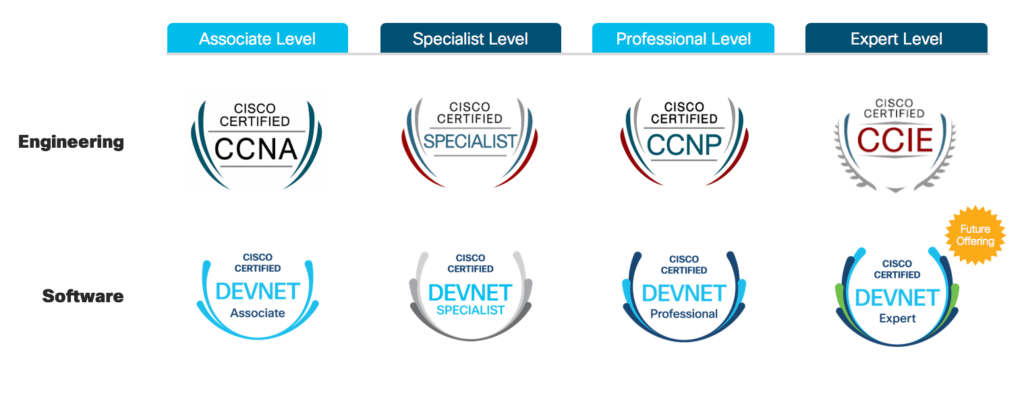Top 8 Networks And Systems Administration Courses Online
Top 8 Networks And Systems Administration Courses Online
Late advancements in the networks/systems administration industry have expanded the interest for networks/systems administration experts in Pakistan and deal a safe work-life in the midst of the pandemic.
The reception of cloud for information stockpiling and the presentation of large information examination have driven the advancement of the Network-as-a-Service market (NaaS). Besides, the fast development and advancement in IoT innovations has turned into the foundation of NaaS.
NaaS has offered organizations more prominent adaptability and execution gains in its organization foundation. With the assistance of on-request buying, firms can reduce expenses and pay just for the systems administration administrations they require.

These advancements have expanded the interest for systems administration experts in Pakistan and proposition a safe work-life in the midst of the pandemic. In 2022, there are a few courses to watch out for.
1. Cisco Certified Network Associate (CCNA)
Cisco Certified Network Associate (CCNA) is a certification program offered by Cisco Systems, a multinational technology company that provides networking hardware, software, and services. CCNA is an entry-level certification that validates a candidate’s knowledge and skills in networking fundamentals, network access, IP connectivity, IP services, security fundamentals, and automation and programmability.
To obtain CCNA certification, candidates must pass one exam, which covers a broad range of networking topics. The exam consists of multiple-choice, drag-and-drop, and simulation questions and lasts for 90 minutes. The exam is conducted online and can be taken at a Pearson VUE testing center or online through the Cisco Exam Online platform.
CCNA certification is a valuable credential for individuals who are interested in pursuing a career in networking, such as network administrators, network engineers, and network technicians. It is also beneficial for IT professionals who want to enhance their knowledge and skills in networking and demonstrate their expertise to potential employers.
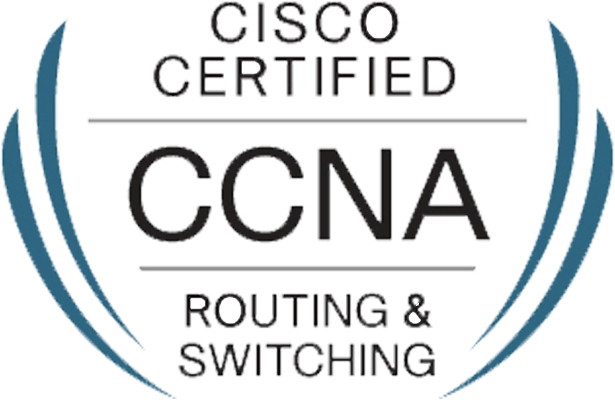
2. Python Network Programming
Python Network Programming is the process of using the Python programming language to create network applications and protocols. Python has become one of the most popular programming languages for network programming due to its simplicity, versatility, and extensive libraries that allow for easy integration of network functionality into applications.
Some of the popular Python libraries for network programming include:
- Socket: This library provides a low-level interface for network communication and allows programmers to implement various network protocols.
- Requests: This library simplifies the process of sending HTTP requests and handling responses.
- Paramiko: This library provides an interface for secure shell (SSH) connections, making it easy to automate tasks on remote servers.
- Twisted: This library is an event-driven networking framework that allows developers to build scalable and flexible network applications.
- Scapy: This library provides a powerful packet manipulation toolset that allows developers to create, send, and capture network packets.
Python can be used to develop a wide range of network applications, including web applications, network scanners, chat applications, network analysis tools, and more. The versatility and flexibility of Python make it an excellent choice for network programming, and the extensive libraries make it easy to implement complex network functionality into applications.
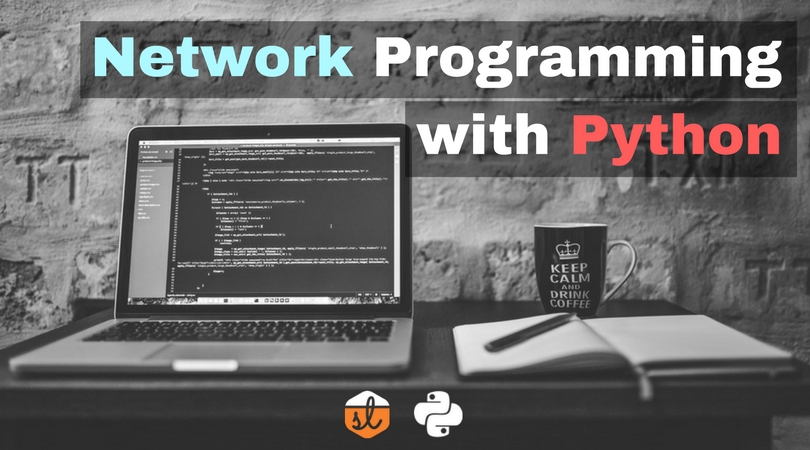
3. CCIE Enterprise Infrastructure Certification and Training
CCIE (Cisco Certified Internetwork Expert) Enterprise Infrastructure Certification is a highly respected certification program offered by Cisco Systems. It is designed for senior network engineers, network architects, network designers, and other experienced IT professionals who are responsible for designing, implementing, and managing enterprise networking infrastructures.
The CCIE Enterprise Infrastructure certification program covers a broad range of networking topics, including network design, network implementation, network troubleshooting, network automation, and network security. Candidates must demonstrate a deep understanding of enterprise networking technologies and best practices.
To obtain CCIE Enterprise Infrastructure certification, candidates must pass two exams – a written exam and a hands-on lab exam. The written exam consists of 90-110 multiple-choice questions and lasts for two hours. The hands-on lab exam is an eight-hour practical exam that tests candidates’ ability to design, implement, and troubleshoot complex enterprise network infrastructures.
To prepare for CCIE Enterprise Infrastructure certification, candidates can take Cisco-approved training courses, read Cisco’s official certification guides and books, and participate in hands-on labs and practice exams. Cisco also offers an online community where candidates can connect with other IT professionals, ask questions, and share their knowledge and experience.
CCIE Enterprise Infrastructure certification is a valuable credential for IT professionals who want to advance their careers in networking and demonstrate their expertise in enterprise network infrastructure design and management. It can also lead to higher salaries, greater job opportunities, and increased professional recognition in the industry.
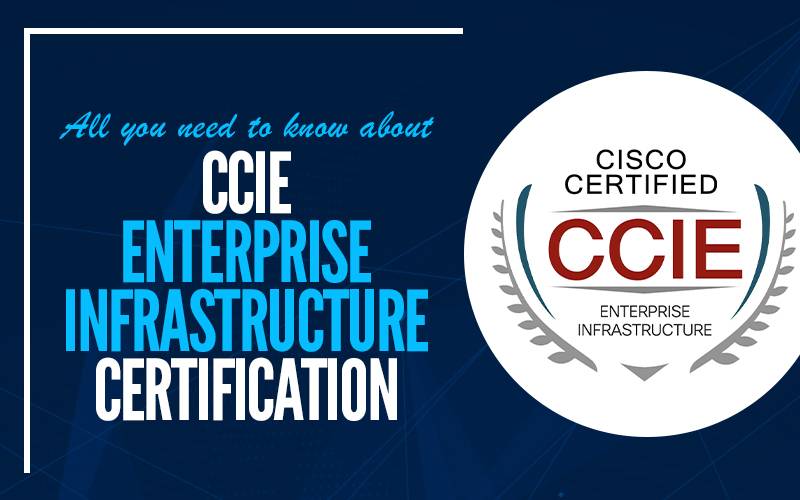
4. AWS Certified Solutions Architect
AWS Certified Solutions Architect is a certification program offered by Amazon Web Services (AWS) that validates an individual’s expertise in designing and deploying scalable and reliable systems on AWS infrastructure. It is one of the most popular and highly regarded cloud computing certifications in the industry.
The AWS Certified Solutions Architect certification program consists of two exams: the AWS Certified Solutions Architect – Associate exam and the AWS Certified Solutions Architect – Professional exam. The Associate exam covers the basics of AWS, including the fundamentals of AWS services, AWS architecture, and AWS deployment. The Professional exam is more advanced and covers topics such as advanced AWS services, security, and high availability.
To prepare for the certification exams, candidates can take AWS-approved training courses, read AWS documentation, participate in online forums, and practice with hands-on labs and practice exams. The AWS Certified Solutions Architect program also offers an online community where candidates can connect with other IT professionals, ask questions, and share their knowledge and experience.
AWS Certified Solutions Architect certification is a valuable credential for IT professionals who work with AWS infrastructure or plan to do so. It demonstrates a deep understanding of AWS services, infrastructure, and best practices and validates the skills and knowledge needed to design and deploy scalable and reliable systems on AWS. AWS Certified Solutions Architect certification can lead to higher salaries, greater job opportunities, and increased professional recognition in the cloud computing industry.

5. Aruba Certified Mobility Associate (ACMA)
The Aruba Certified Mobility Associate (ACMA) certification is a vendor-specific certification program offered by Aruba Networks, a subsidiary of Hewlett Packard Enterprise (HPE) that provides wireless networking hardware, software, and services. The ACMA certification validates an individual’s knowledge and skills in configuring, managing, and troubleshooting Aruba wireless networks.
To obtain the ACMA certification, candidates must pass the Aruba Certified Mobility Associate Exam, which covers a broad range of topics, including wireless fundamentals, Aruba wireless architecture, wireless LAN configuration, authentication and encryption, mobility, and troubleshooting.
To prepare for the ACMA exam, candidates can take Aruba-approved training courses, read Aruba’s official certification guides and books, participate in hands-on labs and practice exams, and use online resources such as forums and community groups.
ACMA certification is beneficial for IT professionals who work with Aruba wireless networks and want to demonstrate their expertise and skills to employers. It can lead to higher salaries, greater job opportunities, and increased professional recognition in the wireless networking industry. The ACMA certification is also a prerequisite for higher-level Aruba certifications, such as the Aruba Certified Mobility Professional (ACMP) and the Aruba Certified Design Expert (ACDX) certifications.

6. Professional Cloud Network Engineer
Professional Cloud Network Engineer is a certification offered by Google Cloud that validates an individual’s expertise in designing, implementing, and managing scalable and reliable networks on the Google Cloud Platform (GCP).
To obtain the Professional Cloud Network Engineer certification, candidates must pass a single exam, which covers a broad range of topics, including GCP networking fundamentals, designing and implementing virtual private clouds (VPCs), load balancing and traffic routing, network security, hybrid networking, and network monitoring and optimization.
To prepare for the certification exam, candidates can take Google-approved training courses, read Google’s official certification guides and books, participate in hands-on labs and practice exams, and use online resources such as forums and community groups.
The Professional Cloud Network Engineer certification is beneficial for IT professionals who work with GCP and want to demonstrate their expertise and skills to employers. It can lead to higher salaries, greater job opportunities, and increased professional recognition in the cloud networking industry.
Google Cloud offers several other certification programs, including the Associate Cloud Engineer, Professional Cloud Architect, Professional Cloud Developer, and Professional Cloud Security Engineer certifications, among others. Together, these certifications provide a comprehensive validation of an individual’s skills and expertise in designing, implementing, and managing cloud solutions on GCP.
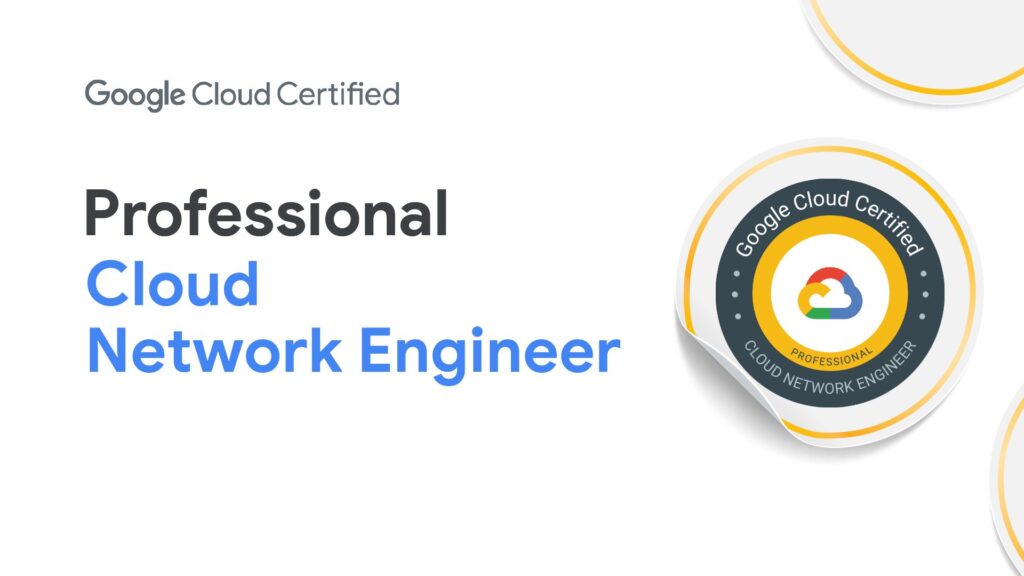
7. Networking in Google Cloud Specialization
The Networking in Google Cloud Specialization is a series of online courses offered by Google Cloud on the Coursera platform. The specialization covers a range of networking topics related to Google Cloud Platform (GCP), including virtual private clouds (VPCs), load balancing, hybrid networking, and network security.
The Networking in Google Cloud Specialization consists of four courses:
- Google Cloud Platform Fundamentals: Core Infrastructure
- Networking in Google Cloud Platform
- Google Cloud Platform Networking: Hybrid Connectivity and Network Management
- Elastic Google Cloud Infrastructure: Scaling and Automation
The first course covers the basics of GCP, including the fundamentals of GCP services, infrastructure, and pricing. The second course focuses on networking in GCP, including VPCs, subnets, firewall rules, and load balancing. The third course covers hybrid networking, including VPN and Direct Connect connections to on-premises networks. The fourth course covers scaling and automation, including autoscaling and infrastructure as code.
The courses are self-paced and include video lectures, hands-on labs, quizzes, and assignments. The courses are designed to provide a comprehensive understanding of networking in GCP and prepare learners for the Google Cloud Certified – Professional Cloud Network Engineer certification exam.
The Networking in Google Cloud Specialization is beneficial for IT professionals who want to gain expertise in networking on GCP, including network engineers, system administrators, and cloud architects. Completing the specialization can lead to higher salaries, greater job opportunities, and increased professional recognition in the cloud networking industry.
8. Cisco Certified DevNet Associate Certification and Training
The Cisco Certified DevNet Associate (DevNet Associate) certification is a vendor-specific certification program offered by Cisco that validates an individual’s knowledge and skills in software development and automation for Cisco platforms and APIs.
To obtain the DevNet Associate certification, candidates must pass the DevNet Associate certification exam, which covers a broad range of topics, including software development fundamentals, APIs and protocols, network fundamentals, security fundamentals, and DevOps fundamentals.
To prepare for the certification exam, candidates can take Cisco-approved training courses, read Cisco’s official certification guides and books, participate in hands-on labs and practice exams, and use online resources such as forums and community groups.
The DevNet Associate certification is beneficial for IT professionals who want to demonstrate their expertise in software development and automation for Cisco platforms and APIs. It can lead to higher salaries, greater job opportunities, and increased professional recognition in the networking industry. The DevNet Associate certification is also a prerequisite for higher-level Cisco certifications, such as the DevNet Professional certification.
Cisco offers several other certification programs, including the CCNA, CCNP, and CCIE certifications, among others. Together, these certifications provide a comprehensive validation of an individual’s skills and expertise in designing, implementing, and managing networking solutions on Cisco platforms.
